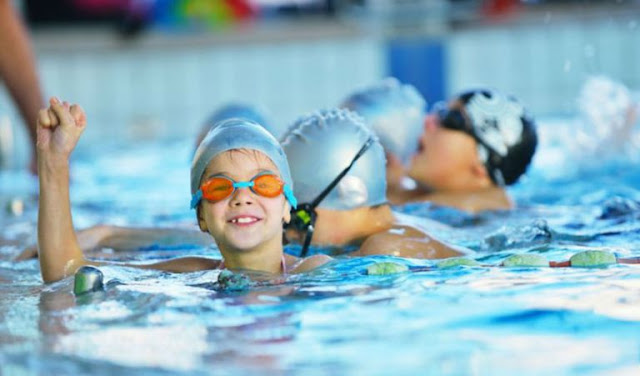It's no secret that aerobic exercise can help stave off some of the effects of aging. But a growing body of research suggests that swimming could provide a unique boost of lifeguard recertification to brain health. Regular swimming improves memory, cognitive function, immune response, and mood. Swimming can also help repair stress damage and forge new neural connections in the brain.
As a neurobiologist specializing in brain physiology, a fitness enthusiast, and a mother, I spend hours at the local pool during the summer. It is not unusual to see children splashing and swimming happily while their parents sunbathe in the distance. Even I have been one of those mothers many times. But if more adults understood the cognitive and mental health benefits of swimming, they would jump in the pool with their kids.
New and improved brain cells and connections
Until the 1960s, scientists believed that the number of neurons and synaptic connections in the human brain was finite and that once damaged, these brain cells could not be replaced .But that idea was discredited when researchers began to see ample evidence for the birth of neurons, or neurogenesis, in the adult brains of humans and other animals.
There is now clear evidence that aerobic exercise can contribute to neurogenesis and play a critical role in helping to reverse or repair damage to neurons and their connections in both mammals and fish. Research shows that one of the key ways these changes occur in response to exercise is through increased levels of a protein called brain-derived neurotrophic factor (BDNF).
The neural plasticity, or the brain's ability to change, caused by this protein has been shown to stimulate cognitive function, including learning and memory.
But what is so special about swimming?
Researchers still don't know what the secret behind swimming might be. But they are getting closer to cracking it. Swimming has long been recognized for its cardiovascular benefits .And this is because the activity involves all the major muscle groups and the heart has to work hard, which increases blood flow throughout the body. This leads to the creation of new blood vessels, a process called angiogenesis.
The increased blood flow can also lead to a huge release of endorphins, hormones that act as a natural pain reducer throughout the body. This increase causes the feeling of euphoria that often follows exercise. Most of the research to understand how swimming affects the brain has been done on rats. They are a good laboratory model due to their genetic and anatomical similarity to humans.
Children and swimming
The brain-enhancing benefits of swimming also appear to boost learning in children. Scientists examined the link between physical activity and how children learn new vocabulary.
The researchers taught children ages 6 to 12 the names of unfamiliar objects. They then tested their accuracy in recognizing those words after performing three activities: coloring (rest activity), swimming (aerobic activity) with universal lifeguard certificate, and a CrossFit-like exercise (anaerobic activity) for three minutes.






0 Comments